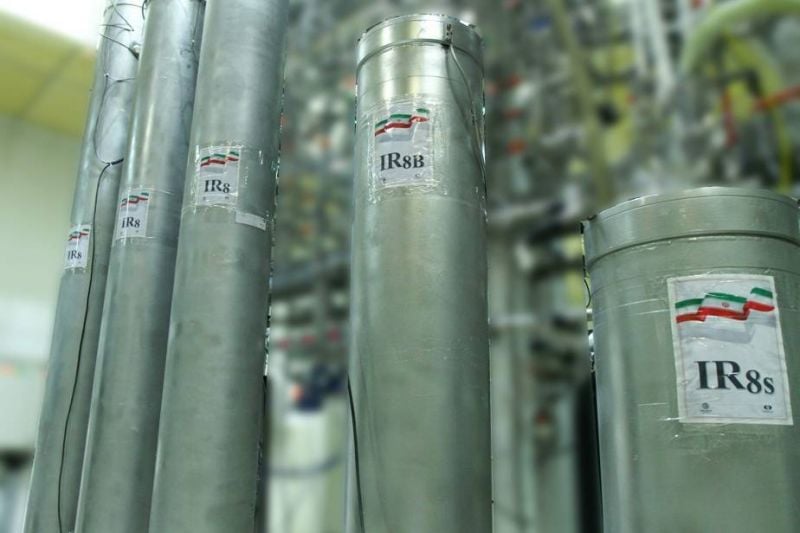The negotiations between the United States and Iran to save the agreement on the Iranian nuclear can they still succeed? The UN General Assembly, next week in New York, should provide the first elements of response.
Where are the negotiations at?
The indirect discussions in Vienna between Iranians and Americans, through the intermediary of the other signatories of the 2015 agreement supposed to prevent Tehran from acquiring the atomic bomb (Germany, France, United Kingdom, China and Russia), made it possible to ‘important advances in the spring. Former US President Donald Trump slammed the door on this agreement in 2018, and reinstated the sanctions he had allowed to be lifted. In return, Iran has increasingly freed itself from restrictions on its nuclear program. The Republican billionaire’s successor in the White House, Democrat Joe Biden, has promised to return to the deal if Tehran returns to its commitments.
The negotiations aim to define which sanctions Washington must lift, and how Iran can stop its nuclear advances.
US diplomacy reaffirmed Friday that this return to the 2015 agreement was the “best option”, but the optimism at the start of the year has dissipated – without the Biden administration revealing a plan B. The process has been at a standstill since June. Iran has indeed elected a new president, the ultra-conservative Ebrahim Raïssi, who has decreed a pause in the negotiations carried out until then by the team of his predecessor Hassan Rohani, considered a moderate on the Iranian political scene.
What will happen at the UN?
President Raïssi will speak on video Tuesday at this major international meeting, for his first major diplomatic speech. And his Minister of Foreign Affairs Hossein Amir-Abdollahian will be in New York for his “debut on the international scene” and to begin a “dialogue with his Western counterparts”, notes the specialist in the file at the conflict prevention organization International Crisis Group, Ali Vaez.
US Ambassador to the UN Linda Thomas-Greenfield said on Friday that Washington had no plans at this stage to have direct contact with Tehran next week. “But that does not mean that we do not consider it important to speak with the Iranians,” she added. The latter, however, should meet the Europeans, while the Americans will be able to ensure the existence of a united front with the other signatories.
The United States’ emissary for Iran, Rob Malley, recently traveled to Moscow for “constructive” talks, then to Paris to speak to Europeans. But, from a European diplomatic source, we are alarmed by a “negative” Chinese development. Beijing “protects the Iranians more and more”, it is lamented.
The meetings in New York should therefore make it possible to “foreshadow what will happen next,” Ali Vaez told AFP.
And after ?
Hossein Amir-Abdollahian suggested at the end of August that the Vienna negotiations would not resume for two or three months. But several observers are hoping for a reboot in October.
For Ali Vaez, the unknown is now the approach of the Raïssi team, in the midst of an internal debate on this subject: “will they keep the same red lines set in June, or will they harden them?” “The Americans are very close to the limit of what they can accept,” “so if the Iranians try to raise the stakes, that’s the recipe for a dead end,” he said.
The identity of the negotiators chosen by the ultra-conservative president should give an indication of his intentions.
When will it be too late?
But “the more time passes”, the closer Iran is to the potential manufacture of a bomb, warned recently the head of the American diplomacy Antony Blinken. It will therefore soon be too late to save the 2015 agreement, he warned, stressing that his government would not wait “indefinitely” with folded arms. “I will not give a date,” added the Secretary of State, however.
In Washington as in Europe, we are assured that we have not yet decided when the agreement will lapse, because that will depend on the progress of the Iranian nuclear program.
“The real time bomb is the disagreements between Iran and the International Atomic Energy Agency (IAEA)”, explains Ali Vaez. Tehran and this UN agency have just reached a compromise on monitoring Iran’s nuclear program, but it is a temporary arrangement.
According to the expert, “if by November these problems are not resolved”, this could precipitate an open crisis that would sign the end of the 2015 agreement.
–
Can the negotiations between the United States and Iran to save the Iran nuclear deal still succeed? The UN General Assembly, next week in New York, should provide the first elements of an answer. Where are the negotiations? The indirect discussions in Vienna between Iranians and Americans, through the other signatories of .. .
.


